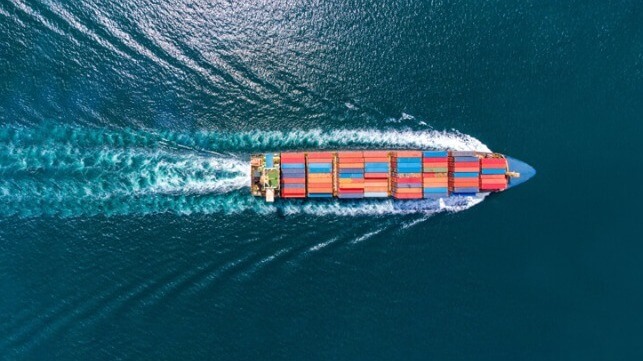BIMCO Calls for More Ambition While Supporting Net Zero by 2050

Reflecting the ongoing debates over the implementation of efforts to reduce emissions from the shipping industry, BIMCO updated its position statement on greenhouse gases expressing its support while calling for the industry to be more ambitious. Like other shipowner associations, BIMCO focuses on the role of the commercial party that controls the ship while also warning of the potential consequences and impacts to the global supply chain from regulation.
Saying that as an organization it supports the objective of net zero carbon for shipping by 2050, BIMCO endorses the International Maritime Organization (IMO)’s initiatives while saying it “believes more ambition is needed.” They call for the IMO to take the lead to establish and administer a global market-based measure putting a price on carbon, saying these efforts are an essential part of the solution.
“As the transition is likely to take a generation of ships, it necessitates having a mechanism to facilitate a level playing field in the marketplace for ships of both conventional and novel technological state. This is because freight rates are unlikely to correlate with the cost of operating ships using vastly more expensive fuels as long as cheap fossil fuel alternatives exist,” writes BIMCO.
The shipowners call for collaborative efforts and responsibilities by stakeholders from shipowners, shippers, and charterers to energy suppliers, shipyards, and engine makers. They believe it is essential that all segments of the industry work together to make the aspirations of reaching net zero carbon by 2050 a reality.
An important issue BIMCO notes in the policy efforts is the allocation of the responsibility for carbon pricing. BIMCO makes it clear that the commercial party responsible for setting the speed and route of a ship should also provide for emissions allowances or credits under a market-based measure. “We believe that in the case of a time charterparty, this responsibility should lie with the charterer, and under a voyage charterparty, it should be with the party that commits the ship to the voyage charter,” says David Loosley, BIMCO Secretary General & CEO.
Among their concern are efforts to regulate capacity as opposed to GHG emissions. They warn of the dangers to the global supply chain and the possibility of compromising the shipping industry’s ability to meet demands through poorly constructed regulatory efforts. At the same time, they also highlight that ”BIMCO believes it is inappropriate for international shipping to be included in national or regional GHG emissions’ regulations.”
Another unintended consequence that they caution against is the “premature retirement of ships could result from retroactive application of unsustainable additional mandatory technical measures.” Speaking to the concerns of how to bring the in-service fleet in line with the regulations, BIMCO supports operational measures such as speed optimization and reducing port time to maximize the operating efficiency. They state that the unwarranted removal of needed capacity from the global supply chains would not only negatively affect the shipping industry but also global commerce.
BIMCO concludes that tackling the barriers to transition may be the single most important issue facing the shipping industry. They note that this is going to require new commercial solutions and shared responsibilities between charterers and shipowners. While committing to creating the necessary commercial framework, they also note that the barriers cut across commercial business practices, which are normally beyond the scope of international regulation.
